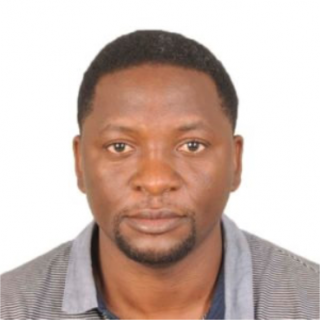
Prosper Chaki, PhD
Executive Director
Dr. Chaki is a Research Scientist and the Chief Executive Director for PAMCA. He received doctoral degree (PhD) in Tropical Infectious Diseases at the Liverpool School of Tropical Medicine. He spent most of his time designing and evaluating affordable community based strategies for monitoring and evaluation of programmatic malaria vector control and surveillance in both urban and rural settings across Africa. He has a broad background when it comes to working with the local communities, districts and programs supporting evidence driven decision making, intervention stratification and deployment.
In some of his past work, he investigated the influence of some specific environmental and interventional determinants to operational programs with keen interest in larval source management and in collaboration with other researchers at the Ifakara Health Institute investigated the epidemiological impact of larval control through microbial larvicide application and effective community engagement strategies for sustainable vector control interventions. He further coordinated the malaria risk mapping initiative and collaboratively helped establish the largest quality assured entomological surveillance system covering 186 villages across mainland Tanzania for evaluating the ongoing interventions and promote evidence-driven delivery of vector control programs in Tanzania.
In addition Dr Chaki is interested in innovations for accelerating malaria elimination particularly novel tools for addressing the current and emerging challenges with mosquito vector control such as outdoor biting mosquito vectors that seem to be at the centre of the malaria transmission question at the moment. He is further committed to harnessing the African based entomological capacity to spearhead capacity building for implementing vector control programs through establishing strong coordination mechanism through regional partnerships and knowledge exchange programs.

Emma Orefuwa, PhD
Interim Director of Programmes
Dr. Emma Orefuwa is the co-founder of the Pan-African Mosquito Association (PAMCA). She brings more than 17 years of Public Health program management experience and has worked extensively in Africa, Asia and Europe. Her first degree was in Biochemical Sciences at the University of Salford in 2001. She then went on to obtain a Master of Science in the Biology and Control of Disease Vectors at the London School of Hygiene & Tropical Medicine (2002) and subsequently a master’s in public health from Kings College (University of London) in 2009.
She is currently serving as Interim Director of Programmes for PAMCA and is based in London. She has held several high-profile project and programme management roles within the UK National health service, International Development, and Global Health sectors. Her most recent appointment was as Africa Programmes Director for UK/Swiss based NGO Global Action Fund for Fungal Infections (GAFFI), a foundation dedicated to reducing illness and death from fungal disease.
Emma has extensive experience managing multi-country Maternal, New-born and Child Health programmes for the African Medical Research Foundation (AMREF Health Africa, UK) and has led the implementation of Diaspora development programmes at the African Foundation for Development (AFFORD).
As a second generation African diasporan of Nigerian and Seychellois descent, Emma has a passion for supporting Africans to act as agents of change, and for facilitating African solutions to African problems. It was during her time working as a co-organiser for the European Mosquito Research Association annual conference in 2009, that she decided with fellow African entomologists to co-found PAMCA which was formally launched in 2011 and registered in 2013.
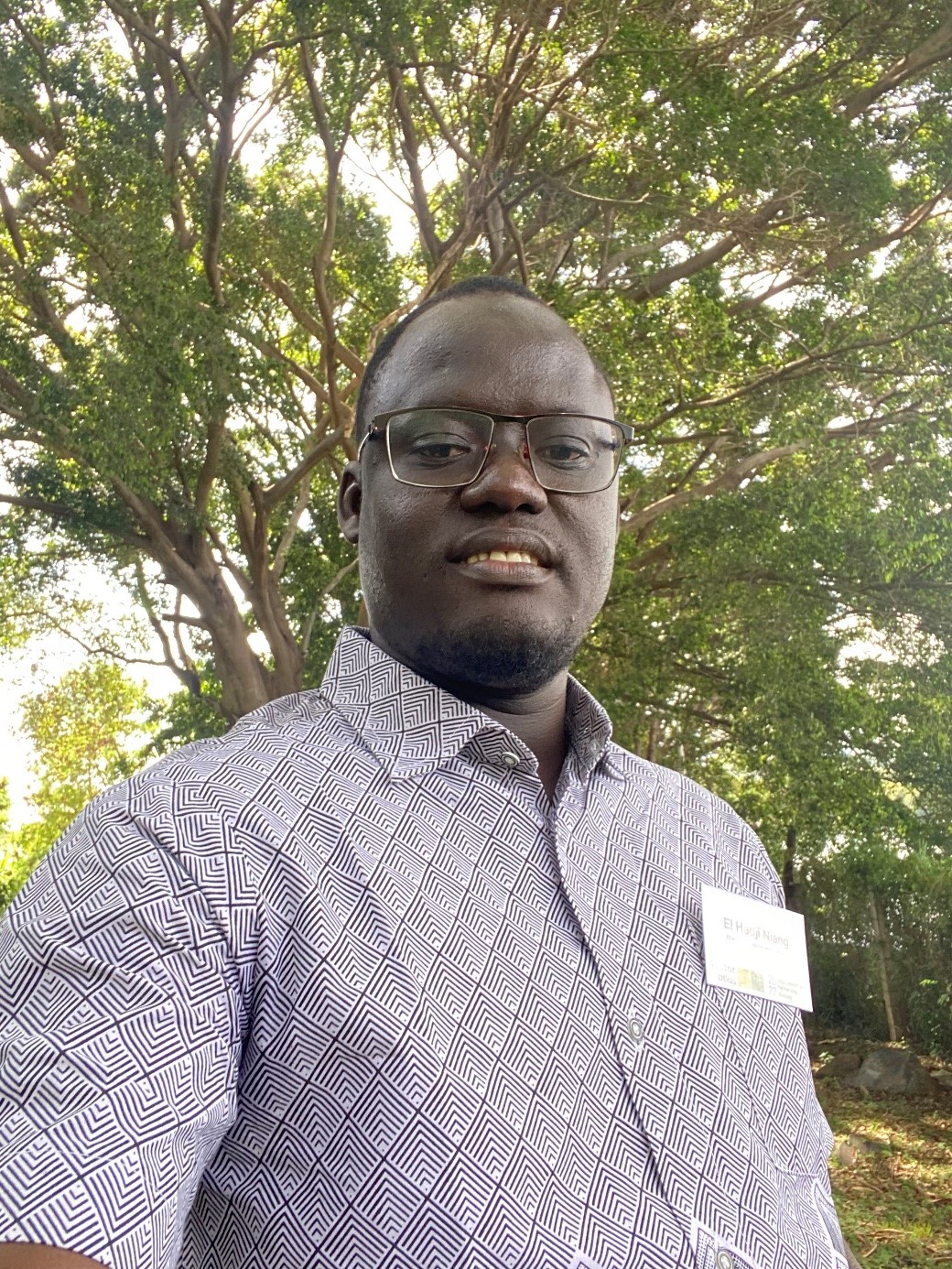
El Hadji Amadou Niang, PhD
Interim Director of Scientific Programs
Dr. El Hadji Amadou Niang is a Senior Medical Entomologist. His interests encompass various aspects of mosquito vector ecology, population genetics and genomics, evolution and applied consequences of insecticide resistance, and the control of mosquito vectors of human disease, with a particular focus on malaria vectors. Prior to his appointment as Interim Director of Scientific Programs, PAMCA, El Hadji worked as a consultant for WHO and UNDP in several sub-Saharan countries. He has also worked with several NGOs, including the Clinton Health Access Initiative (CHAI) as the Regional Associate Malaria Vector Control, Francophone West, and Central Africa.
As the current Interim Director of Scientific Programs at the Pan African Mosquito Control Association (PAMCA), El Hadji commits himself to saving lives and reducing the vector-borne diseases burden in the continent by helping to nurture a critical mass of African problem-solvers to solve Africa’s health and developmental problems, engaging equitably the female and male workforce to tackle VBD, strengthening local governments and reinforcing national and international partnership.
Dr Niang is the lead of the RBM- VCWG Workstream 1 Task Team 4, addressing the non-biological threats of vector control tools/interventions. He provides technical support to NMCPs, training their staff in the design and implementation of targeted vector control interventions to eliminate active foci based on the Integrated Vector Management (IVM) strategy. El Hadji is an active member of several national and international technical committees and affiliated to numerous scientific vectors societies.

Samson Kiware, Ph.D
Program Manager, Research and Knowledge Management
Samson Kiware holds a Ph.D. in Computational Sciences (2014) and MSc in Computer Science (2009) from Marquette University, Milwaukee, WI and a bachelor degree in Computer Science and Mathematics (2007) from Carthage College, WI. He is a Principal Research Scientist at the Ifakara Health Institute (IHI), where he leads the Advanced Statistics & Mathematical Modelling Unit. Dr. Kiware hold courtesy appointments as Research Assistant Professor at Marquette University and as Adjunct Professor at the Nelson Mandela African Institution of Science and Technology.
Dr. Kiware’s expertise includes infectious diseases modelling and machine learning algorithms with applications to infectious diseases primarily malaria. He is active in disease modeling but also oversees substantial field research in malaria surveillance, vector control, and other public health areas. He has managed several projects funded by international organizations such as USAID, Gates Foundation, and Wellcome Trust.
Dr. Kiware supports the Research and Knowledge Management Program for PAMCA providing technical support on data management and analysis for various National Malaria Control/Elimination Programs across sub-Saharan Africa. He leads an initiative aimed at ensuring proper management of mosquito data via Mosquito Database Management System (MosquitoDB) for the management of diverse mosquito. Primarily, to ensure that NMCPs are supported with data systems to support data driven decisions and are capable of analyzing the routine surveillance data.
Dr. Kiware mentors MSc and PhD students and has established a program funded by the Bill and Melinda Gates Foundation aimed at strengthening the data science and mathematical modelling capacity in Tanzania and elsewhere in sub-Saharan Africa. He has published in several international peer-reviewed journals and has presented his research work at various local and international conferences.
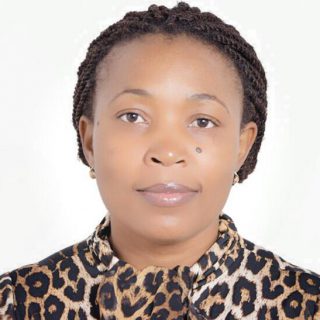
Damaris Matoke Muhia, PhD
Programme Manager, Capacity Building, Gender Mainstreaming and Career Progression
Dr. Damaris Matoke-Muhia is a Molecular Biology Research Scientist at the Kenya Medical Research Institute (KEMRI) and Post-Doctoral Fellow at the International Centre of Insect Physiology and Ecology (ICIPE). Her research interest is on utilizing genomics in the control vector borne diseases. She holds a PhD in Molecular Medicine from Jomo Kenyatta University of Agriculture and Technology, MSc in Biotechnology and BSc in Biochemistry. Currently, Dr. Matoke’s research is on malaria and leishmaniasis with a focus on exploring innovative vector control tools, vector bionomics, insecticide resistance monitoring, population genetic structure, parasite screening and characterization in correlation with ecological factors, disease epidemiology and climate change.
At PAMCA, she spearheads the Women in Vector Control programme which aims at “Strengthening the role of Women in Vector Control in Africa”. In addition to her research, Damaris is passionate in mentoring young career scientists and advocates for the advancement of the careers of women. Damaris is ASPEN new voices fellow and an Affiliate of the African Academy of Sciences.
Dr. Matoke has received a number of local and international research funding. She supervises PhD and MSc students, and has a passion in mentoring young women in STEM. She is a member of American Society of Tropical Medicine and Hygiene, Kenya National Malaria Forum, Multilateral Initiative on Malaria (MIM) and an Organizing Secretary for the KEMRI Annual Scientific Health (KASH) Conference, among others.
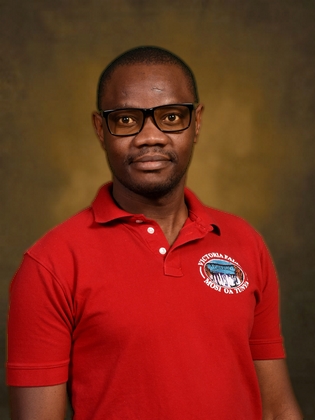
Elijah Juma, PhD
Program Manager
Dr. Elijah Juma is a medical entomologist with over ten (10) years’ professional experience in the control and management of mosquitoes and the diseases they transmit. Before joining PAMCA in 2020 as the Program Manager, he worked as Applied Entomologist at Vestergaard (EA) Ltd, disease control solutions company, supporting the Trials Manager product testing, evaluation, and the role-out of new generation long-lasting insecticide-treated bed nets (LLINs).
He did his PhD studies at the University of Illinois at Urbana-Champaign, USA from 2015-2019. His PhD research focused on leveraging high-throughput metagenomic sequencing techniques to characterize the microbiota of container-dwelling Aedine and Culicine mosquitoes, to elucidate the nexus between mosquito microbial diversity, structure, and their interaction with their mosquito larval environment, and how this knowledge can be used to answer important ecological questions pertaining mosquito control.
As PAMCA’s Program Manager – Chapter Liaison, he leads PAMCA’s entomological capacity strengthening initiatives, working with stakeholders in vector-borne disease endemic African countries within the PAMCA Country Chapters framework. Elijah also leads PAMCA’s Vector Genomics and Bioinformatics Project, an initiative aimed at strengthening the bioinformatics capacity in Africa to facilitate acquisition and utilization of genomic surveillance data to guide evidence-based decision-making on vector-borne disease response in Africa. He also leads PAMCA’s early-career development and progression initiatives targeting students and early-career entomologists by availing training opportunities, conference travel awards among others. As an early-career scientist, Elijah has several of his scientific works published in international peer-reviewed journals.
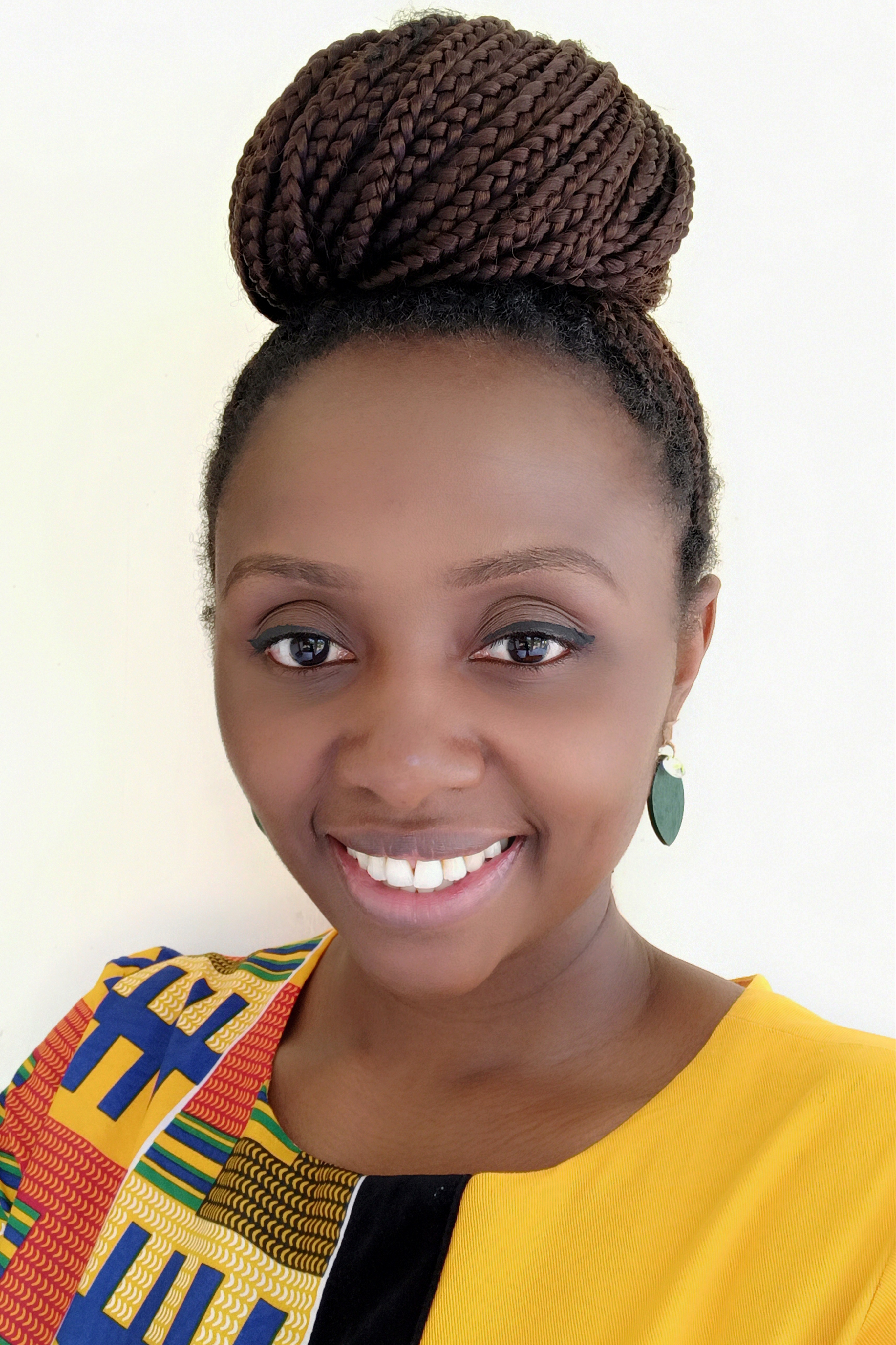
Jessy Goupeyou-Youmsi, PhD
Women in Vector Control (WIVC) Regional Coordinator for West Africa (WA)
Dr. Jessy Goupeyou-Youmsi is a Medical Entomologist with expansive knowledge in malaria transmission and vector control. As Women in Vector Control (WIVC) Regional Coordinator for West Africa (WA), Jessy leads and oversees the implementation of WIVC initiative programs in the WA Region including training opportunities, strategic partnerships with different stakeholders.
Jessy holds a PhD from Sorbonne University in France and was a recipient of the Doctoral Grant Calmette & Yersin of the Pasteur Network (from 2015 to 2018). Most of her PhD work was carried out in Madagascar where she was hosted at the Immunology of Infectious Diseases Unit of the Institut Pasteur de Madagascar. Some of Jessy’s doctoral research led to the implementation of the first platform for the experimental infections of Anopheles by Plasmodium falciparum and Plasmodium vivax in Madagascar. She also holds a master’s degree in Parasitology & Ecology obtained at the University of Yaoundé I in Cameroon.
Before joining PAMCA, Jessy worked as a Postdoctoral Research Fellow on a project characterizing the Plasmodium transmission reservoirs in Malawi, under the Malawi International Center of Excellence for Malaria Research (ICEMR) at the Malaria Alert Centre of the Kamuzu University of Health Sciences.
Jessy has received several awards including the PAMCA WIVC Excellence Award. Communicating with a younger African audience, particularly promoting women participation in the control of vector-borne diseases in Sub-Saharan Africa, is one of the things Jessy holds in high esteem.

Rosalia Joseph
Women in Vector Control (WIVC) Regional Coordinator for Central and Southern Africa
Rosalia Joseph is a seasoned public health researcher with a master's degree in medical Entomology. Her research interests include vector insecticide susceptibility, vector control insecticide and net efficacy, novel vector control interventions, and digital health applications. She has a demonstrated record of accomplishment of collaboration with international partners such as the Clinton Health Access Initiative, the World Health Organization – AFRO II, and the University of California, San Francisco – Malaria Elimination Initiative. She is equally a beneficiary of the partnership between the University of Namibia, the Ministry of Health and Social Services, and the University of California San Fransisco – Malaria Elimination Initiative.
As Women in Vector Control (WIVC) Regional Coordinator for Central and Southern Africa, Rosalia leads and oversees the implementation of WIVC initiative programs in the Region including training opportunities, and strategic partnerships with different stakeholders. Prior to joining PAMCA as the WIVC Coordinator for Central and Southern Africa, she worked as a researcher at the University of Namibia - Multidisciplinary Research and was embedded with the National Vector-borne Disease Control Program (NVDCP) the of Ministry of Health and Social Services supporting entomological surveillance studies, capacity building and training of laboratory and insectary technicians, and environmental health officers, as well as overseeing the effective management of the insectaries.
Rosalia was a runner-up for the Pan-African Mosquito Control Association's Women in Vector Control Excellence Award (Early-career) in 2021. Rosalia is the African Leaders Malaria Alliance Malaria Youth Army champions' country lead in Namibia, as well as a member of the Roll Back Malaria youth workstream.
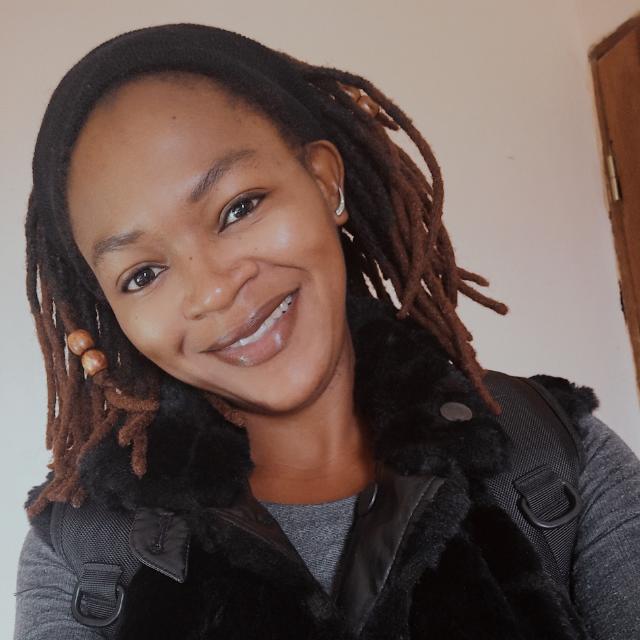
Amelie Wamba, PhD
Project Coordinator, Gene Drive Project
Dr. Amelie Wamba is passionate about the use of innovative technologies to improve health systems. Amelie holds a PhD in Biochemistry with a specialisation in Biotechnology and Development from the University of Yaoundé 1, Cameroon, funded by the Centre for Research in Infectious Diseases (CRID) and Wellcome Trust. Her PhD research focused on elucidating insecticide resistance mechanisms in malaria vectors across Africa.
As Project Coordinator for the Gene Drive project, Amelie supports the running of the African Gene Drive for Vector Control Network activities which includes recruitment of members, stakeholders' engagement, organization of training and communication. Before joining PAMCA, she was engaged in community-based activities, national health, and demographic surveys in some communities in Cameroon. Amelie has also served as a bilingual Translation Consultant for the National Institute of Statistics, Cameroon and IDinsight, Cameroon.
Amelie is a 2019 Mandela Washington Fellow from Georgia State University Leadership in Public Management track at the Andrew Young School of Policy Studies in Atlanta, USA. She was also recently selected as a spokesperson for The Global Fund Advocates Network (GFAN), to share messages about The Global Fund’s work and encourage collective engagement in the fight against malaria. Her long-term goal is to improve and implement health strategies by informing policy through evidence-based findings and increased collaboration between public health specialists and research scientists.

Jane Njeri
Bioinformatics Trainer (ToT) Fellow for the Anopheles Genomics Phase II Project
Jane Njeri is a Bioinformatics Trainer (ToT) Fellow for the Anopheles Genomics Phase II Project. As part of her responsibilities, Jane will explore different perspectives in part of PAMCA-Wellcome Sanger Institute’s goal to expand bioinformatics capacity in vector genomics in Africa, review and update training materials on vector genomics and bioinformatics and will also participate in trainings and workshops under the Anopheles Genomics II project.
Before joining PAMCA, Jane was part of the Eastern Africa Network for Bioinformatics Training (EANBiT) for her master’s study at Pwani University in Kilifi, Kenya. During her master's work, Jane was involved in SARS-CoV-2 genomic surveillance project at KEMRI-Wellcome Trust Research Programme (KWTRP). Her research focused on the optimization of SARS-CoV-2 assembly pipeline and quantification of the viral transcript abundances. Jane has a B.Sc. in Microbiology obtained from Pwani University, Kenya. Her B.Sc. research project focused on the theme "The expression of PHIST (Plasmodium helical interspersed sub-telomeric) genes as potential stimulators of naturally acquired immunity against malaria infection".
Her research interests are in Host-pathogen interactions, vector-borne and infectious diseases, statistical genomics, biomarker identification and enjoys data visualization.
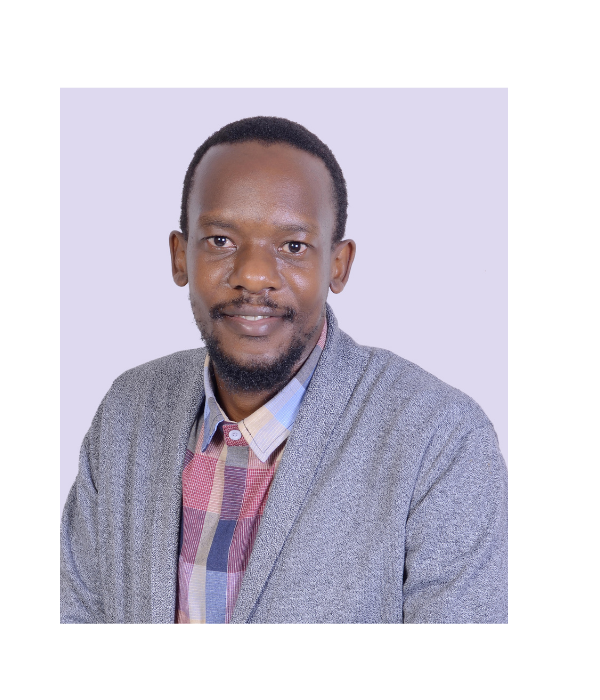
Edward Lukyamuzi
Bioinformatics Trainer (ToT) Fellow for the Anopheles Genomics Phase II project
Edward Lukyamuzi is a Bioinformatics Trainer (ToT) Fellow for the Anopheles Genomics Phase II project. As part of his responsibilities, Edward would advance PAMCA-Wellcome Sanger Institute's goal to expand bioinformatics capacity for vector genomics work in Africa. Prior to joining PAMCA, he served as a Bioinformatics Associate at the Uganda Virus Research Institute - H3ABioNet node providing bioinformatics analysis support, tool, and workflow development. His work was aimed at fostering omics analysis and contributing to the development of standard operating procedures (SOPs) for common bioinformatics data analysis tasks.
Edward contributed to the development of an automated Next-Generation Sequencing (NGS) based pipeline for reproducible analysis of mosquito genomes, particularly for variant calling and Single Nucleotide Polymorphisms (SNP) visualization. The pipeline provides a turn-key tool to scientists in low-resource settings with the tools and ability to evaluate vector genomics data as equal partners. In turn, this will facilitate several investigations including identifying genome loci for insecticide resistance, genotype identification of genes for novel tools development, identifying genetic markers for population structure studies to track the potential spread of resistance alleles to guide implementation of resistance management strategies.
Though Edward’s academic background is in Computing and Mathematics; he has always had a keen interest in biological science research and completed a M.Sc. in Bioinformatics from Makerere University, Uganda. His research interests focus on data-intensive computing at the intersection of cloud and multicore technologies with an emphasis on contributing to the development of tools, methods, and computational systems to foster the mining of meaningful insights, patterns, and trends from biomedical data to guide operational health research and public health policy.

Jacinta Muli
Trainee, Insecticide Treated Nets (ITN) Durability Monitoring project
Jacinta Muli is currently working as a Trainee for the Insecticide Treated Nets (ITN) Durability Monitoring project. As part of her responsibilities, Jacinta supports data collection in the field, Net sample cutting, laboratory bioassay, sample preparation and shipping for chemical analysis to Centre for Disease Control and Prevention (CDC) Atlanta, and report writing.
Jacinta holds a master’s degree in public health from Jomo Kenyatta University of Agriculture and Technology, Kenya, and a Bachelor of science in Biomedical Technology from the University of Nairobi, Kenya. Prior to joining PAMCA, she worked as Research Assistant Volunteer at the Centre for Biotechnology Research and Development, KEMRI.
She has valuable skills in Research, Data Collection, Field mosquito collection procedures, Molecular species identification, Sporozoite and host determination in test mosquito, Insecticide test procedures and Lymphatic filariasis Research. As a female scientist, her long-term goal is to address the gaps in vector control by improving human health through research and collaboration.
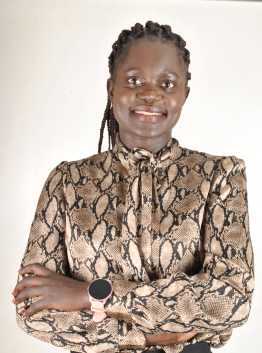
Sonia Barasa
Bioinformatician ‘Train the Trainers” (TOT) Fellow for the Anopheles Genomics Phase II Project
Sonia Barasa is a Bioinformatics Trainer fellow for the Anopheles Genomics phase II project. As a Bioinformatics ToT fellow, part of her responsibilities is to participate in trainings and workshops of the Anopheles genomic phase II projects, review and design vector genomics and Bioinformatics’ curriculum for the training courses, and advance PAMCA-Sanger Institute’s goal to expand the capacity of vector genomics in Africa.
Sonia holds a BSc. in Biotechnology from Masinde Muliro University, Kenya, and a MSc. in Bioinformatics from the University of Nairobi, Kenya. During her master's studies, her research focused on the characterization of genetic variations in the phaseolin (α-Phs) gene and the encoded seed protein content at molecular level among selected common bean accessions. The insights of her project are polymorphisms that are associated with seed protein content, that influence the nutritional quality in bean grain foods.
Her research interests focus on understanding the key drivers in insecticide resistance in vector control strategies, the role of evolution in vectorial capacity, application of Bioinformatics tools to understand microbe –mosquito interactions, molecular marker and signature identification, and Database management systems. Prior to joining PAMCA, Sonia served as an innovation fellow with C4Dlab in collaboration with UNICEF which aims to build digital tools/instruments to harness skills among youths using design thinking.

Ibra Lujumba
Bioinformatician ‘Train the Trainers” (TOT) Fellow for the Anopheles Genomics Phase II Project
Ibra Lujumba is a Bioinformatics Trainer (ToT) Fellow for the Anopheles Genomics Phase II project at PAMCA. As part of his responsibilities, Ibra would advance PAMCA-Welcome Sanger Institute's goal to expand bioinformatics capacity for vector genomics work in Africa.
Ibra holds a BSc in Biochemistry and Chemistry from Makerere University, Uganda. Ibra has always had a keen interest in Bioinformatics and understanding the dynamics of human-parasite-vector interactions, human genomics as well as genomics of African indigenous cattle. These interests fit into the wider perspective of studying existing challenges of increasing drug resistance, poverty rate and food insecurity due to climate change.
His research interest focus on understanding the growth dynamics of wild-type trypanosomes in humans and cattle, identifying variants that are responsible for observed tolerance to trypanosomiasis among indigenous cattle living in tsetse fly-endemic cattle corridor in Uganda. Prior to joining PAMCA, he served as a member of H3Africa two bioinformatics working groups that are studying transcriptomics and repeat expansions using Africa-wide human genomics datasets.

Christina Sudi
Women in Vector Control (WIVC) Regional Coordinator for East Africa (EA)
Christina Sudi holds a Master of Arts Degree in Community Development, a Post Graduate Diploma in Environmental Planning and Advanced Diploma in Community Development. She has over 15 years’ experience in Community- Based Development Projects particularly, those targeting gender and inclusion development. Christina’s career expertise includes, engaging diverse stakeholders and development partners (both state and non-state actors) in implementation of various development programs from grassroot to national level.
As Women in Vector Control (WIVC) Regional Coordinator for EA, Christina leads and oversees the implementation of WIVC initiative programs in the Region including training opportunities, and strategic partnerships with different stakeholders. Prior to joining PAMCA, Christina has contributed to the long-term sustainability of diversity and inclusion within her previous project activities; conducting Gender Assessment which inputted, the organization’s Gender Strategy and designed activities to address Gendered differentiated needs; with various training programs implemented and technical support provided on Gender Integration. She has successfully trained women groups, community leaders, technical and supporting staff members and community facilitation teams on Gender Integration.
Christina is a change agent and gender specialist endowed with development principles, concepts, and practices related to Community Development, Gender, WASH, education and health, women empowerment, and positive youth development, with passion in environmental protection. A capable trainer with intensive skills in organizing international and national workshops and delivering training at different levels. Her primary objective in life is to be the change she wants to bring in the society.
